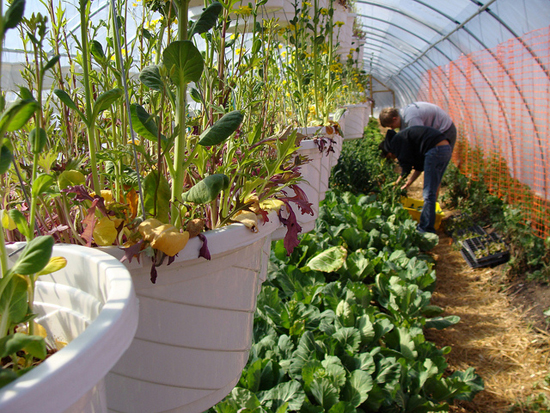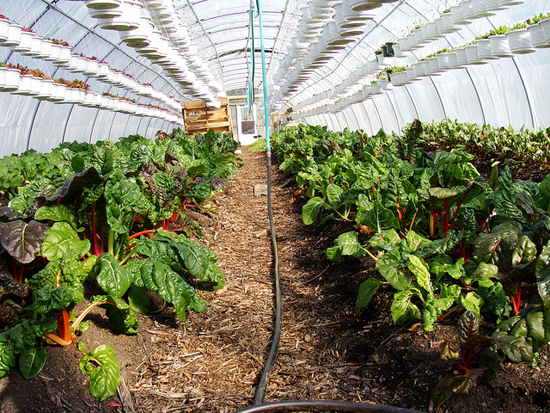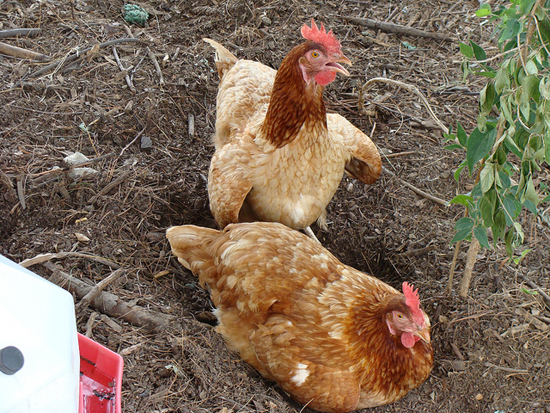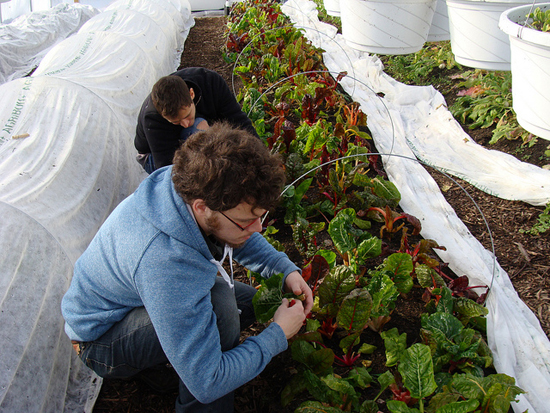Watershed Wednesday: ECO (Engaged Community Offshoots) City Farms
An urban farm cultivates crops and community on just one acre of land.
Drivers honk at each other, passing by layers of parking lots and shopping centers; armies of workers wait for a bus; food carts occupy every corner; and pedestrians tow their children through the cement jungle, ignoring crosswalk signals and jumping in front of cars without the slightest bit of fear.
Tucked away in this impervious kingdom called Prince George’s County is a place of natural beauty, where worms dig through compost, chickens play tag and honeybees busily buzz. Here at ECO City Farms, every inch of ground is precious; a blanket of veggies and fruits is shadowed by rows of hanging pots. The completely solar and geo-thermal powered farm located in Edmonston, Md., raises chickens and ducks, keeps bees and grows enough crops for a CSA (Community Supported Agriculture) operation--all on one acre of land.

Image courtesy Eco City Farms/Flickr
Also known as Engaged Community Offshoots, ECO City Farms manages land and grows food in ways that benefit the Chesapeake Bay watershed: with no chemical fertilizers, and no petro-based or non-organic treatments, pesticides, herbicides or fungicides.
Impressive, but perhaps impossible? ECO City relies on natural processes to deter insects. Did you know planting marigolds next to your tomato plants will keep insects away? These simple but natural technologies define ECO City’s farming methods and ensure that the chemicals typically used in gardening operations do not end up in our food or the nearby Anacostia River and Chesapeake Bay.
ECO City implements farming methods that are healthy for the Bay watershed and its residents, but it also understands the importance of educating and engaging the local community.
The organization's tagline is "creating a just and sustainable world," a mission statement that trumps the money-making agendas of any commercial big-box farm. ECO City understands its role to exceed the agricultural industry and remains committed to connecting community members to their food.
ECO City educates and empowers local residents, giving them the tools and knowledge they need to kickstart their own urban agriculture operation. Dedicated to keeping food in the hands of the people, ECO City is not your average farm.

Image courtesy Eco City Farms/Flickr
What's new at ECO City:
Located in the residential neighborhood of Edmonston, Md., a Washington, D.C., suburb, the farm hosts volunteer Saturday work days and tours of the farm.
The New Urban/Immigrant Farmer Training program teaches interested adults the tenants of urban farming over the course of a year, and a new DIY (Do It Yourself) Green Building Series covers how to capture and reuse rain water, how to build a hoop house, how to create a green roof and more!
A new commercial kitchen will allow the farm to offer educational cooking courses and to turn produce into products (basil becomes pesto sauce, tomatoes and peppers become salsa!)

Image courtesy ECO City Farms/Flickr
Here are some ECO City methods that you may be able to take home:
- Put worms in your compost! Red wiggler worms consume their body weight in organic matter every single day. Their waste (called castings) acts as a natural fertilizer. Learn how to make your own worm bin, whether you live in an apartment or a farm!
- After your worms create compost, make compost tea! This liquid can be used to prevent pests and disease on plants.
- Go vertical. If you don’t have enough space, consider hanging pots or any of these creative ideas.
- Build a hoop house. It may sound daunting to build a whole new “house” on your property, but ECO City has four on one acre! Hoop houses don’t cost as much as greenhouses, and plants are still sheltered from the cold and other extreme weather. Sign up for ECO City’s hoop house building class this fall.
- Consider bees. Keeping honeybees in urban environments is gaining popularity in Europe as well as Bay cities like Baltimore. Even if you can’t keep honeybees, remember that bees of all kinds are important pollinators and will help your plants reproduce. Learn how to plant for pollinators.
- Support local, sustainable agriculture. Look for CSAs (Community Supported Agriculture programs) in your area.

Image courtesy ECO City Farms/Flickr

Comments
There are no comments.
Thank you!
Your comment has been received. Before it can be published, the comment will be reviewed by our team to ensure it adheres with our rules of engagement.
Back to recent stories